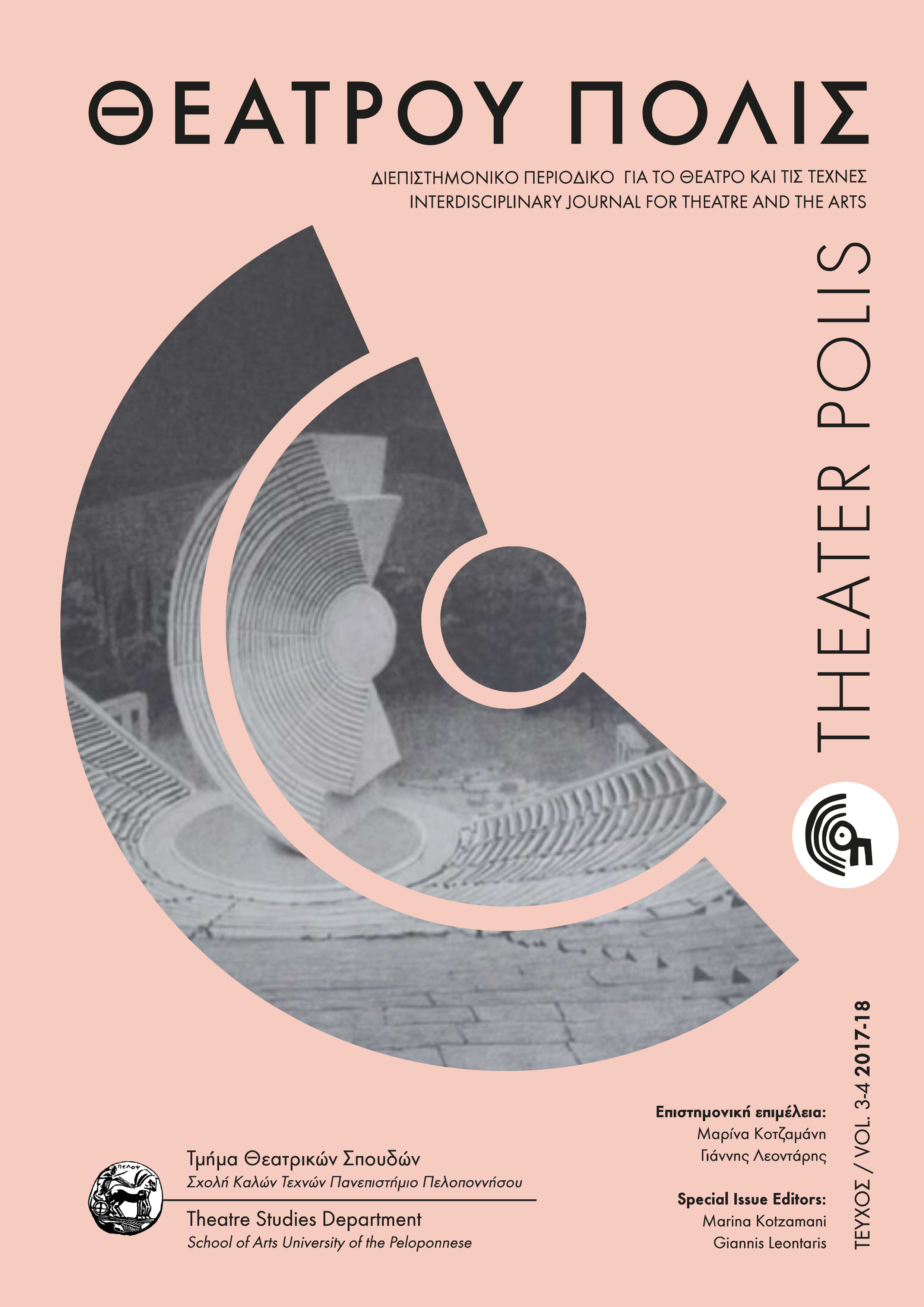Representing Otherness: dramaturgy and performance in Michael Marmarinos’s Lysistrata by the National Theatre of Greece at the Epidaurus Festival 2016
Abstract
The article focuses on Michael Marmarinos’s version (2016) of Aristophanes’
Lysistrata (411 BC). The comedy was produced by the National Theatre of Greece in
2016 and was staged, in the context of the Athens/Epidaurus Festival, at the ancient
theatre of Epidaurus. I argue that the production can be viewed as a paradigm of
another (different) stage version of the Aristophanic play, highlighting the otherness
of old comedy as a comic genre. The dramaturgy and the director’s approach to the
female characters, the old women’s Chorus and the old men’s Chorus are closely
looked up, along with the semiotics of the performance regarding the nakedness of the
women’s performers, the foreignization techniques and the role of music. The article
takes into account the adaptation of the new translation script (by Dimitris
Dimitriadis) and the rendering of comic scenes of the play, such as the agon of the
two semi-choruses (254-386) and the parabatic debate (614-705). The article argues
that the National Theatre production (2016) of Marmarinos’s Lysistrata at Epidaurus
goes beyond the debate of gendered representation of otherness and the semiotics of naked bodies. Rather, it interprets the war conflict in Lysistrata as a collision between
different generations and ideologies.
Article Details
- How to Cite
-
ΜΑΝΤΕΛΗ Β. (2023). Representing Otherness: dramaturgy and performance in Michael Marmarinos’s Lysistrata by the National Theatre of Greece at the Epidaurus Festival 2016. Theater Polis. An Interdisciplinary Journal for Theatre and the Arts, 1(1), 53–64. Retrieved from https://ejournals.epublishing.ekt.gr/index.php/theatrepolis/article/view/34441
- Section
- Articles
Τα πνευματικά δικαιώματα των δημοσιευμένων άρθρων ανήκουν στο περιοδικό. Απαγορεύεται η μερική ή/και ολική αναδημοσίευση κειμένων που δημοσιεύονται στο περιοδικό, χωρίς την συγκατάθεση της των Επιμελητών ή της Συντακτικής Επιτροπής και επιβάλλεται αναφορά στην πρώτη δημοσίευσή τους στο περιοδικό Θεάτρου Πόλις.



